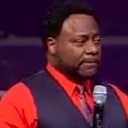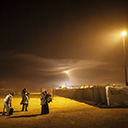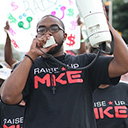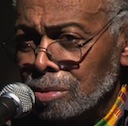
By some metrics, African-American women are faring better than black men. They comprise nearly two-thirds of black undergraduates and a clear majority of advanced degree holders. But these numbers tell only part of the story.

When the artist Donald Judd bought his loft at 101 Spring Street in the late 1960s, SoHo was beginning to transform from a “blighted” industrial area to a luxury neighborhood. Today, Judd’s loft is a time capsule of SoHo’s transformation, which has become a model for gentrification around the country.

Fast food work has long been synonymous with bad working conditions and crummy pay—but beginning in the fall of 2012, it had also become synonymous with widespread labor unrest.

The rhetoric last summer at commemorations of the fiftieth anniversary of the March on Washington was quite different from that heard at the original march in 1963. Instead of celebrating the great march, the anniversary events sounded a plea for a new civil rights movement. Largely missing from that call, however, was the strong prophetic voice of black religion.

“The owl of Minerva,” Hegel famously wrote, “flies only at dusk”: historical events can be theoretically comprehended only in retrospect. Is this the case with neoliberalism? A term ubiquitous in the academy but scarcely used outside it, the concept is difficult to define with precision. Two recent books attempt to describe neoliberalism’s historical origins and explore its current political implications.

The military conflict inside Syria and the political negotiations between the government, rebels, and their respective allies are often treated as separate issues, with the refugee crisis merely a tragic outcome of the crisis inside the country. But the refugee flight, the experience of displacement, and the long-term solutions to the crisis are likely to redraw the region’s political map.

What intellectual obituaries reveal about our times. “When the attention to intellectual production goes, so too does our ability to understand the equally fraught process of intellectual reception. And what goes missing is the story of intellectual labor as labor and how that labor has been a force in history.”

An early defeat and a year-old victory have put energy and urgency into the effort by American trade unionists to launch what AFL–CIO president Richard Trumka has declared a “new strategic initiative.”

In 2002, Scott Sherman published this essay on Amiri Baraka. “Yet Baraka still has the power to surprise us.”

What started as a philosophy promulgated by black elites to “uplift the race” by correcting the “bad” traits of the black poor has evolved into one of the hallmarks of black politics in the age of Obama. In an era marked by rising inequality and declining economic mobility for most Americans—but particularly for black Americans—the politics of respectability works to accommodate neoliberalism.

I’m going to focus on a distinctive landscape of ruins, an amazing, dreadful landscape that came to define the South Bronx, and for many people to define New York, for the last decades of the twentieth century. Those ruins were one of New York’s great negatives. I want to try to do what Hegel says: look the negative in the face.
The purpose of this new magazine is suggested by its name. . . . The accent of Dissent will be radical. Its tradition will be the tradition of democratic socialism. We shall try to reassert the libertarian values of the …
From the beginning, Dissent has been a haven for utopian ideas. An early essay by Irving Howe and Lewis Coser declared that socialism was “the name of our desire,” paraphrasing what Tolstoy had written about God. In 1954 it was …
When you’re celebrating your sixtieth birthday, there is a natural impulse to gaze back fondly at what you did well. For a magazine that has always been described as “little,” Dissent has aspired to contain multitudes. In our pages (and, …
Blacks In and Out of the Left by Michael C. Dawson Harvard University Press, 2013, 256 pp. Contemporary African-American scholars across the humanities and social sciences share a preoccupation with posing big questions about the dilemmas of black life in …


















